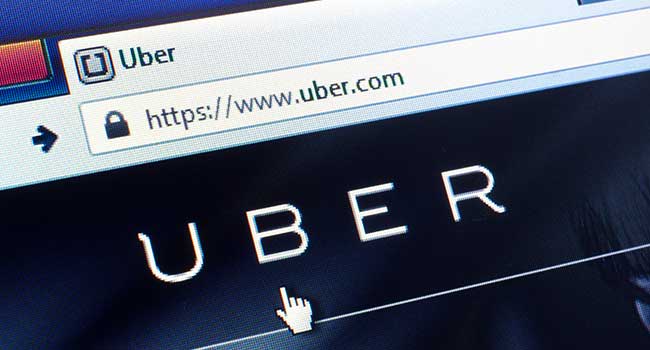
What Your Business Can Learn From Uber's Mass Security Breach
It seems that Uber is still learning from its mistakes, even as it continues to grow at a rapid rate. But for other companies, the security breach provides a few key lessons.
- By Matthew Walker Jones
- Jan 08, 2018
Uber is certainly no stranger to controversy. In its relatively short existence, the company has faced protests, regulatory hurdles and been accused of implementing unfair competitive practices. Uber would no doubt argue that some of these incidents are simply part and parcel of being an industry disruptor. When a new player comes along, existing businesses will always try to maintain the status quo.
However, the company’s most recent scandal is anything but expected. Back in October 2016, Uber was hit by a huge cyberattack that resulted in personal information belonging to 57 million drivers and customers being stolen. Worse still, the data breach was only disclosed in November 2018, with Uber paying the hackers $100,000 to keep quiet.
It seems that Uber is still learning from its mistakes, even as it continues to grow at a rapid rate. But for other companies, the security breach provides a few key lessons. So, here are some essential things that your business can learn from the breach.
It can happen to anyone
One thing that is abundantly clear regarding the recent data breach, is that cyberattacks can affect businesses of all sizes. Uber has a $70 billion valuation and has received countless plaudits for the way that it has revolutionised the taxi industry. In fact, the company has become synonymous with disruption through the term “Uberisation.” If Uber can become the victim of a cyberattack, with its immense financial clout, then companies of all sizes are also vulnerable.
Choose your partners carefully
Looking at the Uber breach more closely, it has been confirmed that the stolen data was accessed via a third-party cloud-based service that the company was using at the time. This demonstrates why businesses should be extremely careful when choosing their partners, particularly when they are entrusting them with sensitive data.
Having said that, businesses should not view the breach as definitive evidence that they should store all of their data and manage all of their processes in-house. Working with a respected and experienced cloud provider can help prevent and mitigate the damage caused by cyberattacks. Sungard AS provides disaster recovery as a service, for example, that can help to identify security flaws, replicate important data and establish a clear communication plan for your employees.
Your reaction is important
Uber also demonstrated to businesses in all industries exactly how not to react when suffering a data breach. The company waited more than a year before informing the affected parties that their data had been compromised, meaning that they had no idea that their information was in the hands of malicious actors. What’s more, by attempting to cover up the breach, Uber showed that it cared more about its own reputation than the security of its customers.
Now the breach is public, Uber also has to be more forthcoming regarding what customers should do next. The company should make it abundantly clear which official channels customers should use to change log-in details and help them to recognise the phishing emails that have already started to emerge. Sometimes, data breaches are difficult to prevent. Reacting appropriately, however, will go a long way to showing customers, clients and partners that your company takes security seriously.
About the Author
Matthew Walker Jones is a freelance writer in the security industry.